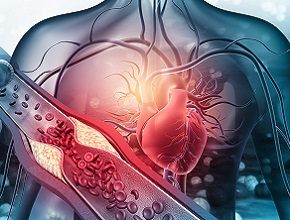Dr Tatjana Potpara is an associate professor at the University of Belgrade, Serbia, cardiologist at the Clinical Centre of Serbia, and coauthor of the European Society of Cardiology guidelines.
If you were to name the 3 most important recent advances relevant for everyday practice in cardiac arrhythmias, what would they be?
Tatjana Potpara, MD, PhD: Thank you, [it is] a great question. Indeed, there are many advances, but, in my view, the most important advance would be the occurrence of non–vitamin K antagonist oral anticoagulants—drugs for stroke prevention in atrial fibrillation (AF). They are increasingly used and, owing to their advantages, they have significantly improved stroke prevention in patients with AF in daily practice.
Next, I would highlight the development and increasing availability of the tools for detecting AF, which is extremely important because ≥30% of patients with AF have asymptomatic arrhythmia, and the first clinical presentation can be deleterious—ischemic stroke.
And the last, but not least important, would be technical improvements and different energy sources with regard to catheter ablation for the treatment of cardiac arrhythmias.
 English
English
 Español
Español
 українська
українська










